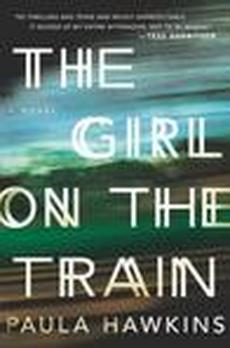
Welcome
I started this blog in 2013 to share my reflections on reading, writing and psychology, along with my journey to become a published novelist. I soon graduated to about twenty book reviews a month and a weekly 99-word story. Ten years later, I've transferred my writing / publication updates to my new website but will continue here with occasional reviews and flash fiction pieces, and maybe the odd personal post.
 Rachel catches the slow train into central London each morning. She’s come to look forward to the moment it pauses at a signal overlooking a row of back gardens to check whether the couple from number fifteen are out on the terrace. The cans of ready-mixed gin-and-tonic that she consumes on the homeward journey and the fantasy she has built up around the lives of this seemingly idyllic couple are all that are keeping her going at the moment so, when she sees something that contradicts her notion of their charmed lives, she’s thrown into chaos. Partly shocked, partly scared and partly exhilarated by the chance to be in on the action, Rachel’s efforts to help appear to make the situation worse. Why should the police, or anyone else for that matter, listen to a deceitful alcoholic? Subject to periodic memory losses and blackouts, Rachel isn’t even sure she can trust herself.
4 Comments
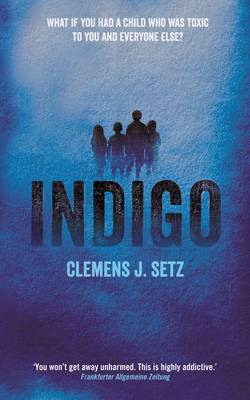 The blue cover of the English edition shows a silhouette of four young people above a précis of the pitch: “What if you had a child who was toxic to you and everyone else?” At the bottom, a further enticement, or is it a warning? “You won’t get away unharmed.” I wasn’t expecting to be disturbed by a futuristic novel about a sinister epidemic of which children are the only carriers, causing anyone who comes near them a barrage of symptoms including dizziness, severe headaches, and nausea. It might not be everyone’s cup of tea, but the darker side of the relationship between old and young, and the devastating impact of parental distance on children’s development, is familiar territory for me, and I looked forward to seeing how this would be explored. The back-cover blurb did nothing to discourage me, but perhaps I ought to have paid more attention to the phrase “part postmodern puzzle”, post-modernism being a concept I’ve consistently failed to understand. 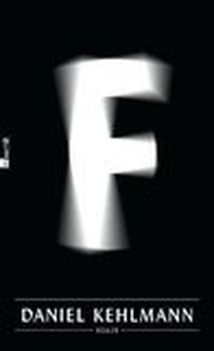 Arthur Friedland, unpublished novelist and general layabout, has three sons from his two marriages: Martin, the eldest by two years, and identical twins, Eric and Ivan, who even themselves aren’t always sure where one ends and the other begins. One afternoon, after taking the three teenagers to a hypnotist stage show, Arthur drives right out of their lives. He doesn’t see them again until about twenty years later, when he has achieved fame as the author of My Name Is No One, a novel so nihilistic it drives its readers to suicide. The core of the novel consists of separate sections following the three brothers across a single swelteringly hot day, the pleasingly palindromic August 8th, 2008. Eric is a pill-popping stockbroker, paranoid and intermittently hallucinating, he’s juggling marriage with a torrid affair with his some-time therapist, on the verge of financial collapse, and perhaps prison, for dodgy dealings. Ivan is an art dealer, expert on the popular but middle-of-the-road Eulenboeck, who is at his most contented when painting canvases which he passes off as the famous artist’s work. But my favourite of the three troubled brothers has to be Martin, a morbidly obese Rubik’s cube expert and Catholic priest who has not yet been blessed with faith. (I’ve admired the depiction of the conflicted priest in Graham Greene’s The Power and the Glory and the deluded and inadequate priest in John Boyne’s A History of Loneliness but the man who has entered the priesthood despite his absence of religious faith is sheer genius, in my opinion.) The circular logic and mysticism through which he tries to respond to his parishioners’ moral and liturgical dilemmas is hilarious, and parallels the positions taken by his brothers in their attempts to justify their own occupation, as well as the hypnotist’s instructions to their father in the opening section:  By the end of this week, I’m hoping to have completed the first round of my publisher’s edits of my forthcoming novel, Sugar and Snails. I’ve blogged before about the joys of collaborative editing but, I must confess, I haven’t always relished having someone else take a scalpel to my treasured words. However much we understand intellectually that the external perspective is vital, it can be difficult emotionally to accept that our darlings must be killed. This time, however, I’m delighted to see paragraphs scored through, sometimes entire scenes. I’m not saying that I agree 100% with my editor’s suggestions, but I do welcome the prospect of cuts. Given that I’d pared the prose down as much as I could before submitting, and a bit more on signing the contract, I am a little surprised that I’m so sanguine about additional extractions. I can’t believe it’s because, after so many years of writing, I’ve achieved a Zen-like state of acceptance; so what else could be going on? 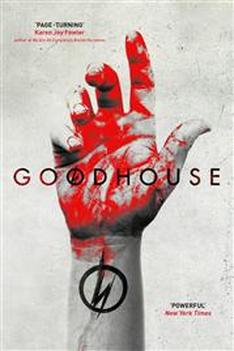 America at the end of the twenty-first century: a world of droughts; advanced technology; and boys identified with the gene for criminality compulsorily enrolled in corrective institutions from the age of three. James is one such child: a Level 1 student with the prospect of a decent life on graduation in under a year’s time. That’s if he can abide by the school’s strict regulations to avoid accumulating any “demerits” and prevent the memories of a vicious arson attack on his previous school from disturbing his calm. Yet, brutal as the school may be, James is anxious about venturing into the civilian world with its confusing freedoms and potential encounters with the hostile Zeros, religious fundamentalists intent on purifying the world by fire. When, on his first Community Day outing, he steals a girl’s barrette hair slide, a set of progressively harsher punishments is set in train which sees James, not only losing his relatively protected status, but uncovering a network of corruption within the school far deadlier than he could have imagined.  On March 25th, Greek Independence Day, John Petrakis, distinguished professor of ancient history, is booked to give a lecture to the Aegina Historical Society. He never makes it: shot through with the bathroom window of the house of one of his dearest friends while taking a shower. His brother, Constantine, despite his lack of filial sentiment and despairing of the police’s tardiness, recruits George Zafiris, private detective based in Athens, to investigate the murder. As George tries to unravel the mystery, another of his cases is becoming increasingly murky, with the unexplained death of a politician engaged in an extramarital affair.  The conventions of psychotherapeutic practice have evolved to ensure the physical and psychological safety of both therapist and recipient and not for the creation of a page-turning novel. While some aspects, such as supervision and personal therapy for the therapist, have the potential to enhance character and plot development, others serve to minimise the jeopardy and tension that is often required for a good story. As I’ve discovered through my reviews of novels in this series some writers blur the boundaries through lack of knowledge, but even a former psychotherapist and a practising clinical psychologist have relaxed the rules of therapy when turning to fiction. Having discussed the limitations of the fictional therapist and how to overcome them with former psychotherapeutic counsellor, Kate Evans, on Twitter, I was intrigued to see how she had tackled the issue in her own debut novel. 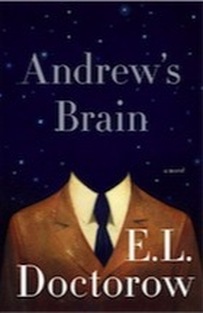 Andrew appears to be particularly accident prone, everywhere he goes he brings disaster, especially to those he loves. After one marriage has ended in divorce and the death of a baby, his second has left him as the hapless father of a motherless baby girl. In a purported conversation with his therapist, he reviews his life story, and the extent of his responsibility for the tragedies that have occurred. Andrew is a “cognitive scientist” with a strong belief in the impact of brain biology on our actions as opposed to the more nebulous mind. Although not necessarily a likeable character, his voice is lively and appealing. At first the novel comes across as a parody of therapy, with the therapist’s questions and largely unhelpful interjections generally ignored. But as the novel progresses, we find ourselves embroiled in a far darker story of not only the wrongs unwittingly triggered by this one individual, but, via Andrew’s college-day friendship with a war-mongering president, of political shenanigans of the worst kind. By the end of the novel the dreams, “soundless voices” and speculation about how far studies of the human brain can take us, that have preoccupied Andrew from the early pages, and even the identity of the seemingly neutral therapist take on a more sinister significance, in which his only note of hope is in the science supposedly underlying his experience, along with his insistence on his inability to feel. 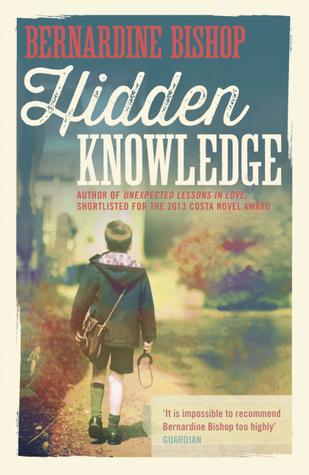 I was a little disturbed by this novel, not so much in respect of the unsettling subject matter, but in the way that subject was handled. I’ve wondered how much of that is me, and how much the writer, and have come to the unbiased or sitting-on-the-fence conclusion (depending on the way you choose to look at it) that it’s a bit of both. It raises a question I’ve considered before on Annecdotal, especially in my review of Jemma Wayne’s After Before, as to whether a novel is weakened by drawing parallels between extreme and milder transgressions or acts of injustice. It also forces me to confront the limits of my openness as a reader to alternative treatments of controversial issues. Bernadine Bishop, who died in 2013, has an interesting history: the youngest witness in the Lady Chatterley trial, she published two novels in her twenties, taught for ten years in a London comprehensive, before retraining as a psychotherapist. On retirement in 2010, she returned to writing fiction, with her first later novel, Unexpected Lessons in Love, which drew on her experience as a mother undergoing cancer treatment, shortlisted for the Costa Novel Award in 2013. If you’ve followed my series on fictional therapists, you’ll appreciate that I was intrigued when I read that Hidden Knowledge stems from her experience as a therapist.  I write to satisfy a difficult-to-pin-down need deep within my psyche, but writing is tough, and publication tougher and, at this stage of my life, I want to prioritise activities that bring me some satisfaction. Before I came out as a writer, I would scribble intermittently and intensively, emotionally-laden narratives that left me demoralised and deflated. About twelve years ago, I enrolled on an online short story course which enabled me to begin the arduous process of learning how to share and edit my words. Although I’m now in the joyful position of having one novel accepted for publication and another doing the rounds, somewhat less joyfully I have several unfinished novel projects and I can’t say I really know how one goes about the process of getting from idea to finished product. Winter being the best time for me to get some serious writing done, as the days grew shorter last year, I was excited when a new idea took shape in my mind. But I didn’t want to make the same mistake as the year before and end up losing interest at around 30,000 words. (I might write a post one day on deciding to abandon a project, although Emma Darwin has done this better than I ever could on her wonderful blog This Itch of Writing.) Hitherto suspicious of NaNoWriMo, I thought I’d make use of its slipstream to knuckle down to my project, albeit with a less ambitious target of an average of 1000 words a day. Have I achieved my goal? The family in the world: The Winter War by Philip Teir and The Lightning Tree by Emily Woof15/1/2015 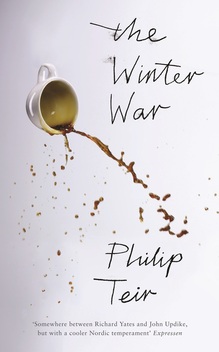 I’m delighted to bring you reviews of two novels published in the UK today which feature couple and family relationships within a wider sociopolitical context. The Winter War* follows a liberal, middle-class professional Scandinavian couple and their two adult daughters over the course of one winter. While this is a period of change for the family, the pleasure of this novel is less in its plot than in its beautifully drawn characters* and searing sardonic wit*. Max Paul is a Finland-Swede*, a sociologist approaching sixty, living off his reputation as a public intellectual, given an ego-boost when a former student turned journalist requests an interview: One important criteria for all research was that it had to be possible to explain the basic ideas in a simple manner. A good doctoral dissertation could be comprehensively summarised over lunch. Taking this to extremes: a good researcher should, in principle, be able to speak with such enthusiasm that his words could function as a series of pick-up lines. (p74) His wife feels ground down by his emotional neglect and burnt out at work in the human resources department of the Helsinki health service: 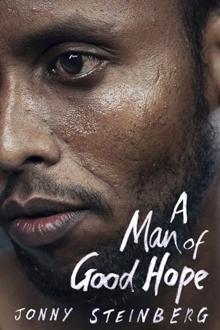 This is the story of an epic conversation between two African men: shopkeeper and Somalian refugee, Asad Abdullahi, and white South African academic and journalist, Jonny Steinberg. Their conversation begins in Cape Town in 2010, a time of violent attacks on foreign nationals in the run-up to the World Cup, travelling back in time to plot Asad’s history of migration from the moment when, at eight years old, his mother was shot in front of him, to end in 2013 when he is resettled with his family in Kansas City, USA. It’s the tale of a child subject to multiple betrayals, “kicked through life like a stone” (p278), drifting between countries and cultures, from a refugee camp as barren as the first concentration camps to the cosmopolitan streets of inner-city Nairobi to a desert settlement deep in the Ethiopian hinterland, who nevertheless has “lived a fully human life … [altering] radically the course of his family’s history, so that his children and their children … live lives nobody in Somalia at the time of his own birth could have imagined” (p313). It’s also, to a lesser extent, the account of the practical and ethical hurdles faced by both men in bringing Asad’s story to the attention of the wider world. “You’re not Superwoman, Anne!” It was no doubt a combination of tussles with my current WIP, Charli Mills’s post on her horror of perfectionism and reaching the end of Shelley Harris’ second novel that reminded me of this feedback from a colleague over twenty years ago. Tasked with resettling longstay psychiatric patients into more ordinary lives within the community (incidentally, the subject of my current WIP), youthful idealism made me susceptible to setting unrealistic goals, both for myself and the service. Not recognising my misguided heroics, my colleague’s comment helped me to take a step back. However much I might have wished to, I couldn’t save the world! So, although I’ve never been tempted to don a cape and mask and strut about my home town righting wrongs, I don’t find it too difficult to identify with the protagonist of Vigilante, who does exactly that. Jenny Pepper has abandoned her career as an actor to become a mother; now she finds herself increasingly marginal in her teenage daughter’s life and unstimulated in her work as the manager of a charity bookshop, the spark long having gone from her marriage. Rendered virtually invisible by dint of her age, unglamorous job and gender, tidying-up has become her life’s purpose until, en route to a fancy dress party, she witnesses a woman being attacked. Although lacking the skills of a comic-book superhero, Jenny does manage to rescue the woman from her assailant. Soon, her secret identity has become an addiction, threatening her marriage, friendship and her own safety. When a masked villain stalks the town, preying on girls the age of Jenny’s daughter, her alter ego is tested to the limit.
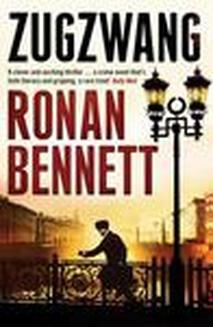 St Petersburg, March 1914: Avrom Rozental has travelled to the city to take part in the World Chess Championship. Due to the fragility of his mental state, his minders have referred him to Dr Otto Spethmann, a renowned psychoanalyst. A widower with an adolescent daughter, Dr Spethmann is becoming overly involved with a new patient, Anna Petrovna, a society beauty and daughter of the powerful Zinnurov, nicknamed The Mountain. The psychoanalyst is also a chess player, engaged in a remote game with his friend and celebrated musician, Reuven Kopelzon, who he has never yet defeated. He considers himself one step removed from politics, until his office is raided and he and his daughter imprisoned on suspicion of concealing information in relation to a dual murder. Zugzwang is a term used in chess to refer to the state in which a player is reduced to utter helplessness, obliged to move, yet every move is guaranteed to make his position worse. Replete with parallels between the logic of the game, the practice of psychoanalysis and the sociopolitical shenanigans of a country on the brink of revolution, there are many zugzwangs in the novel, leading to a climax in which Dr Spethmann is faced with an impossible choice between different kinds of love. 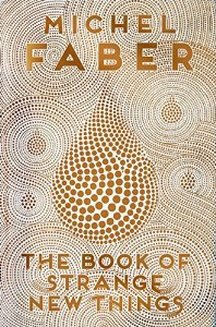 Beatrice and Peter are united in their love for each other, their church and God, but when only he is selected as missionary to a faraway planet, they accept their separation with goodwill. Rocketing trillions of miles in a drug-induced coma, Peter is too excited by the challenge to question the motives of USIC, the organisation that has recruited him. His first hours on the base are a catalogue of strange new things: the green water that tastes of melon; the humid atmosphere that twirls and creeps like prying fingers beneath his clothes; the community of loners quietly engrossed in their various roles in establishing the colony. But Peter has not been recruited to attend to the spiritual needs of his fellow humans; his job is to satisfy the indigenous population’s thirst for what he calls the Bible and they “the book of strange new things”. To the earthlings, the Oasans are disturbing creatures, despite their small and frail stature, shrouded in hooded robes of a fabric “disconcertingly like a bath towel” that intermittently reveal faces like twin foetuses “nestled head-to-head, knee to knee”. But, trusting in God and humbled by their openness to Christian the message, Peter easily overcomes his initial revulsion. |
entertaining fiction about identity, mental health and social justice
Annecdotal is where real life brushes up against the fictional.
Annecdotist is the blogging persona of Anne Goodwin:
reader, writer, slug-slayer, tramper of moors, recovering psychologist, struggling soprano, author of three fiction books. LATEST POSTS HERE
I don't post to a schedule, but average around ten reviews a month (see here for an alphabetical list), some linked to a weekly flash fiction, plus posts on my WIPs and published books. Your comments are welcome any time any where. Get new posts direct to your inbox ...
or click here …
Popular posts
Categories/Tags
All
Archives
March 2024
BLOGGING COMMUNITIES
|
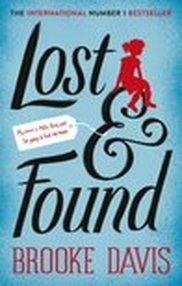





















 RSS Feed
RSS Feed





















